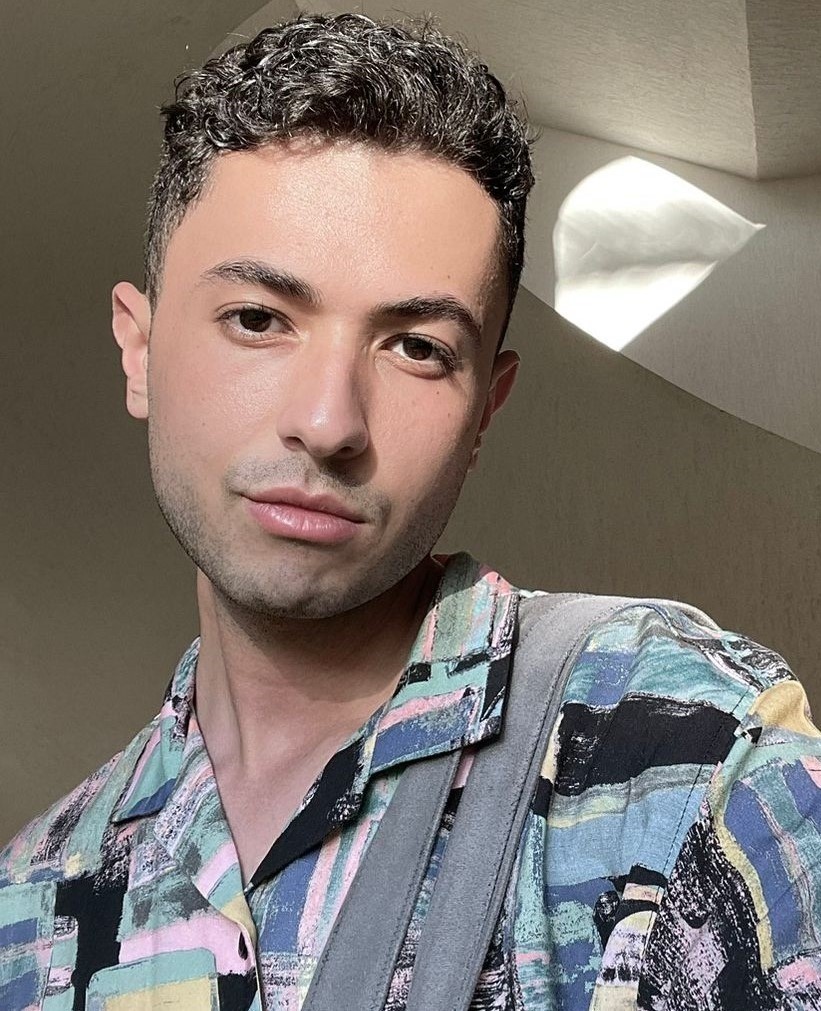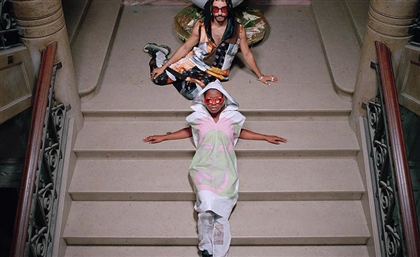Bokja: The Beirut-Based Design Studio Reupholstering Vintage Textiles
Weaving new narratives into bundles of traditional textiles, Bokja’s signature assemblage births pieces that are truly unique.
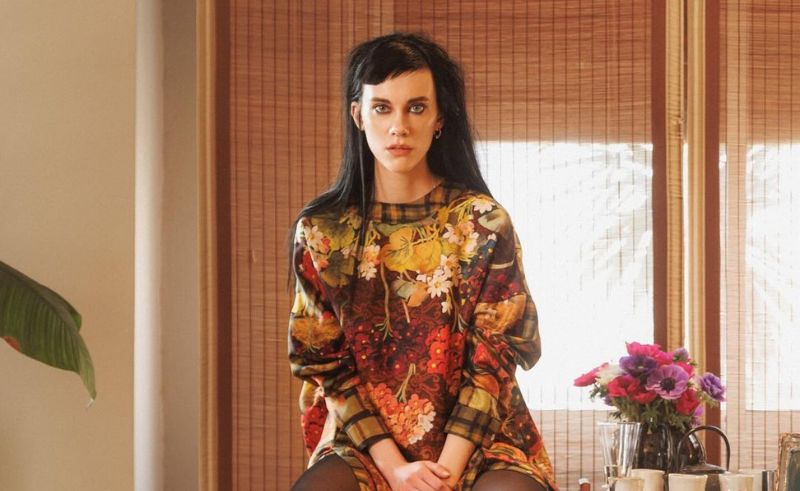
“Everything we make comes with its own passport. These pieces have been places, they have a complex and multilayered history.”
‘Something old, something new, something borrowed, and something blue.’ So goes the centuries-old Victorian bridal rhyme, one that mayhaps the few of us who grew up watching ‘Say Yes to the Dress’ may be quite familiar with. The idea of new beginnings always carries within its proverbial being traces of the past - and for two women, Huda Baroudi and Maria Hibri, looking into the past was how the future of ‘Bokja’ began.
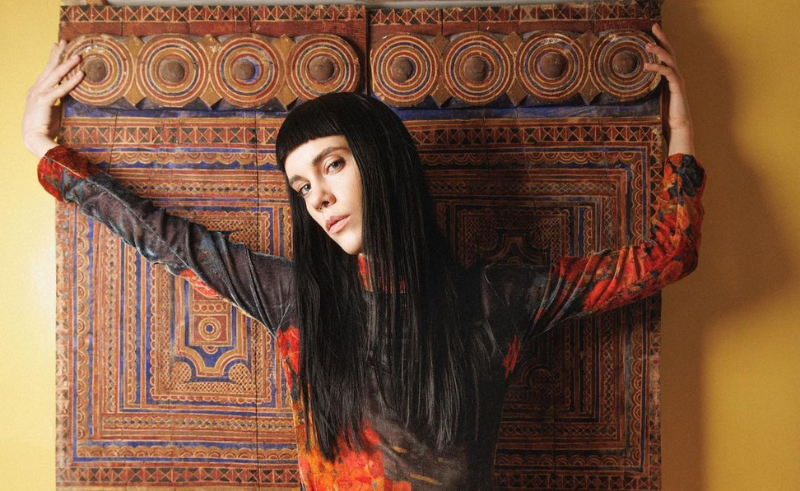 Turkish for the bundle of fabric used to wrap the dowry of a bride-to-be, Beirut-based multidisciplinary design studio Bokja takes its name and inspiration from the aforementioned tradition often witnessed in the Middle East, where wedding dowries featured hand embroidery from female family members. Founded in 2000, Bokja sought to both preserve such local crafts while introducing them to new contexts with a modern aesthetic.
Turkish for the bundle of fabric used to wrap the dowry of a bride-to-be, Beirut-based multidisciplinary design studio Bokja takes its name and inspiration from the aforementioned tradition often witnessed in the Middle East, where wedding dowries featured hand embroidery from female family members. Founded in 2000, Bokja sought to both preserve such local crafts while introducing them to new contexts with a modern aesthetic.
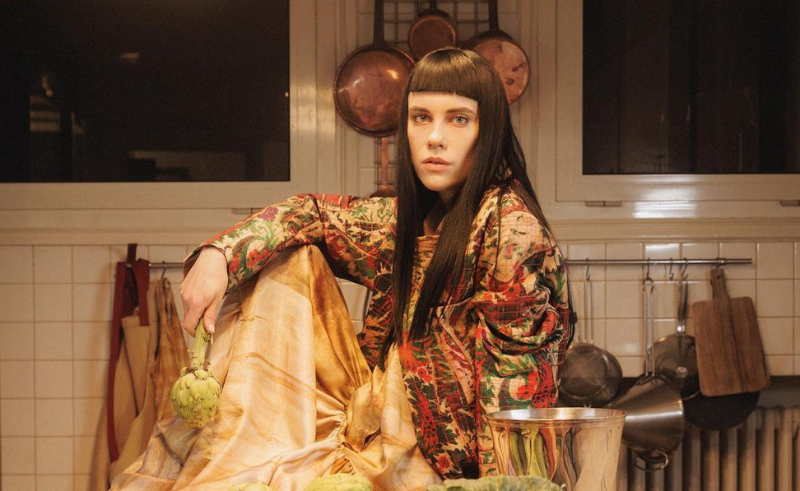 Baroudi and Hibri’s journey began by collecting textiles and reupholstering vintage furniture in an artistic ‘assemblage’ style that brought diverse eras and places together into cohesive works of art, each creation weaving a new story from fragments of other histories and identities. Over time, Bokja evolved into a full-fledged textile laboratory and collaborative venture. When skilled artisans immigrated to Lebanon during the Arab Spring, Huda and Maria incorporated their embroidery traditions, forming a community of regional talent.
Baroudi and Hibri’s journey began by collecting textiles and reupholstering vintage furniture in an artistic ‘assemblage’ style that brought diverse eras and places together into cohesive works of art, each creation weaving a new story from fragments of other histories and identities. Over time, Bokja evolved into a full-fledged textile laboratory and collaborative venture. When skilled artisans immigrated to Lebanon during the Arab Spring, Huda and Maria incorporated their embroidery traditions, forming a community of regional talent.
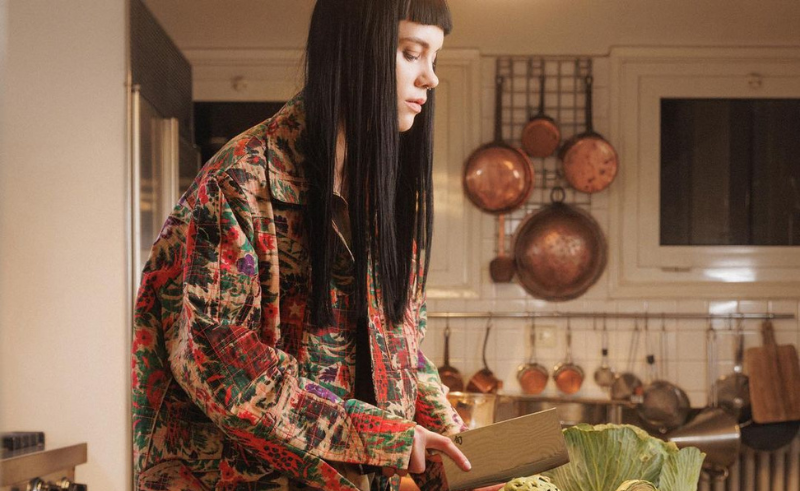 Today, Bokja represents a diversity of expertise from around the region. This spirit of cultural sharing underpins all of their pieces - through textile-centred forms, Bokja explores identity, how it travels and connects across boundaries. Whether fashion, decor, or large-scale installations, their assemblages give voice to critical issues by allowing histories sewn into each fabric snippet to intersect in original, meaningful ways.
Today, Bokja represents a diversity of expertise from around the region. This spirit of cultural sharing underpins all of their pieces - through textile-centred forms, Bokja explores identity, how it travels and connects across boundaries. Whether fashion, decor, or large-scale installations, their assemblages give voice to critical issues by allowing histories sewn into each fabric snippet to intersect in original, meaningful ways.
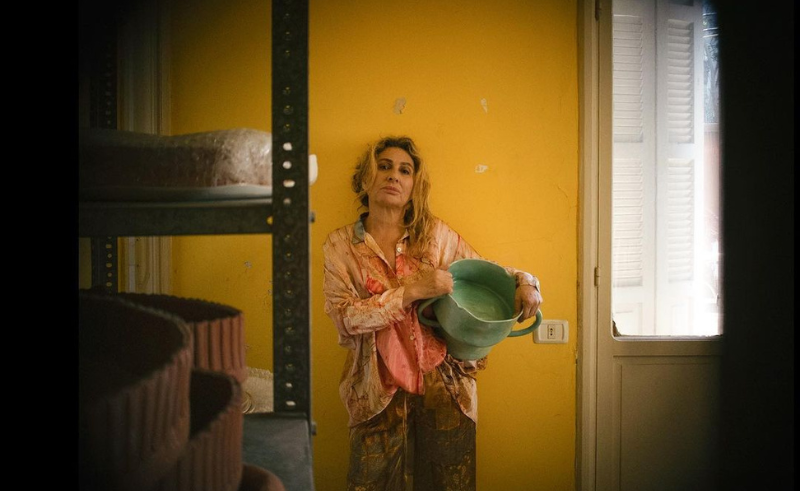 “From the beginning we were so enthralled by the handmade works of embroiderers alongside the Silk Road, their steadfast pace when manipulating a textile, their use of colour and pattern, and their intense personal association to the object created,” Bokja founders and Maria Hibri share in a virtual exchange with SceneStyled. “In parallel, we were enchanted by the immaculate precision of European and American objects-makers during the mid-century. We lived in-between these two different realms, and our initial vision was to merge those two worlds.”
“From the beginning we were so enthralled by the handmade works of embroiderers alongside the Silk Road, their steadfast pace when manipulating a textile, their use of colour and pattern, and their intense personal association to the object created,” Bokja founders and Maria Hibri share in a virtual exchange with SceneStyled. “In parallel, we were enchanted by the immaculate precision of European and American objects-makers during the mid-century. We lived in-between these two different realms, and our initial vision was to merge those two worlds.”
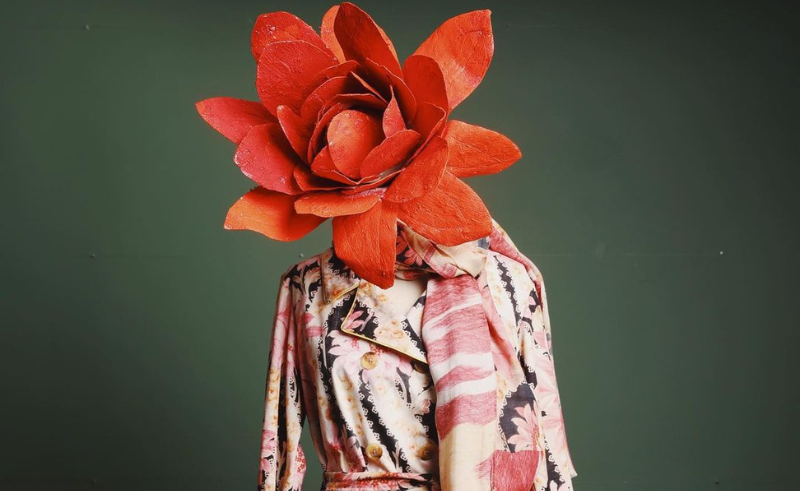 Since those early days since the founding of Bokja, the design studio has stayed true to its initial vision; producing fashion, furniture, and literal tapestries that immortalise the art of embroidery and give vintage and antique fabrics and textiles a new lease on life. Utilising their signature ‘assemblage’ approach, each Bokja creation stands out from its metaphorical neighbour, and yet when witnessed together, there is a certain sense of unity that just shines.
Since those early days since the founding of Bokja, the design studio has stayed true to its initial vision; producing fashion, furniture, and literal tapestries that immortalise the art of embroidery and give vintage and antique fabrics and textiles a new lease on life. Utilising their signature ‘assemblage’ approach, each Bokja creation stands out from its metaphorical neighbour, and yet when witnessed together, there is a certain sense of unity that just shines.
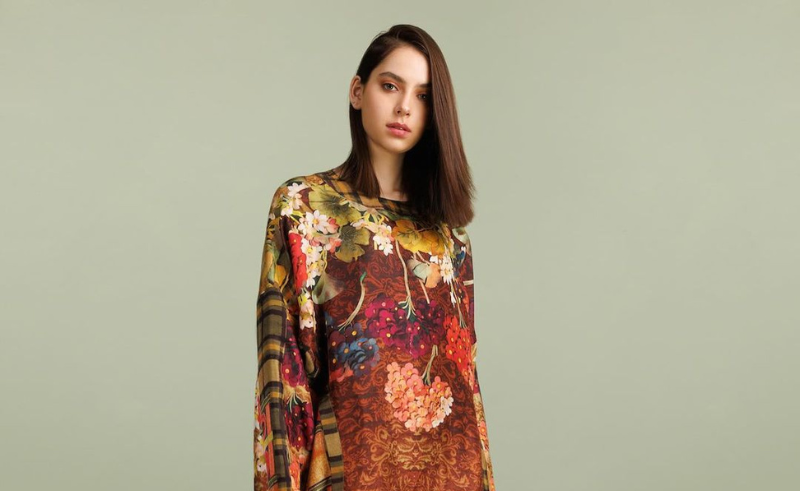 Inherently Levantine and Middle Eastern in style and aesthetic, each Bokja piece is reminiscent of multiple facets of regional identity; lacework brings to mind Ramadan nights gathered at the family home, floral prints - quite literally - take from Ottoman cushions, and bird motifs bring one’s mind back to vacation days by the Beirut shore. “It’s the textiles that talk and really dictate the next move,” Huda Baroudi shares. “A lot of work is based on intuition, daily inspiration and sometimes whimsicality. We respond a lot to the materials at hand, working on it is like working on a puzzle.”
Inherently Levantine and Middle Eastern in style and aesthetic, each Bokja piece is reminiscent of multiple facets of regional identity; lacework brings to mind Ramadan nights gathered at the family home, floral prints - quite literally - take from Ottoman cushions, and bird motifs bring one’s mind back to vacation days by the Beirut shore. “It’s the textiles that talk and really dictate the next move,” Huda Baroudi shares. “A lot of work is based on intuition, daily inspiration and sometimes whimsicality. We respond a lot to the materials at hand, working on it is like working on a puzzle.”
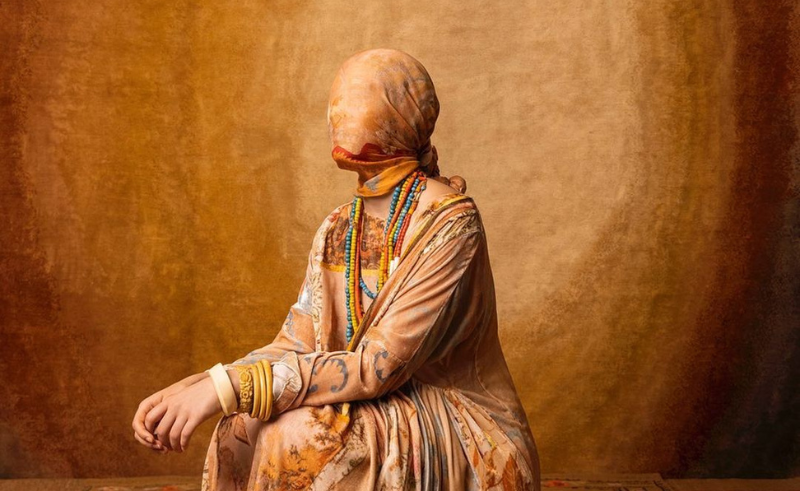 With sustainability a core value at Bokja, exemplified through their ethos of preserving cultural heritage while creating contemporary works, the multidisciplinary studio sources only natural and recycled fibres like silk, cotton and repurposed textiles. Their textile laboratory limits waste - scraps are saved and reused in future pieces or given to other local designers. Through workshops and exhibitions, Bokja spreads awareness of traditional craft practices that are environmentally-friendly. Their assemblage approach demonstrates how treasured materials from our shared past can be reinvigorated for modern livelihoods and more sustainable futures.
With sustainability a core value at Bokja, exemplified through their ethos of preserving cultural heritage while creating contemporary works, the multidisciplinary studio sources only natural and recycled fibres like silk, cotton and repurposed textiles. Their textile laboratory limits waste - scraps are saved and reused in future pieces or given to other local designers. Through workshops and exhibitions, Bokja spreads awareness of traditional craft practices that are environmentally-friendly. Their assemblage approach demonstrates how treasured materials from our shared past can be reinvigorated for modern livelihoods and more sustainable futures.
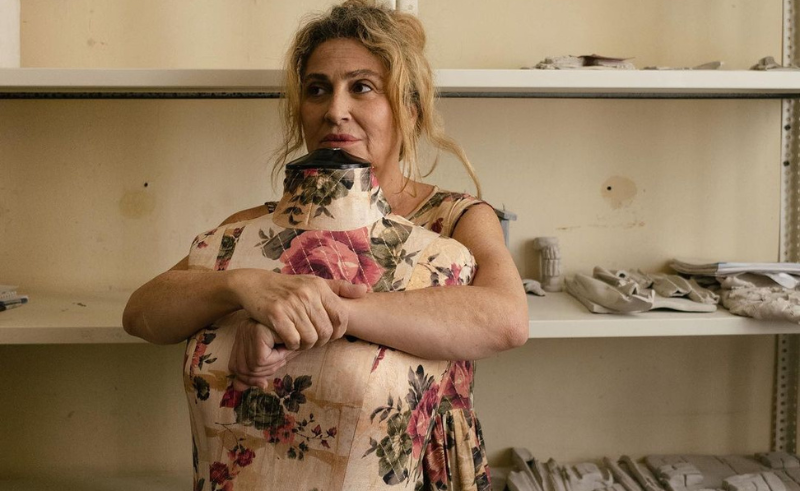 In addition to their own productions, Bokja's workshops impart vintage techniques to new audiences, collaborations have led to sustainable collections with like-minded brands, and exhibitions have toured internationally, continuing conversations that honour traditions but also imagine progressive futures. Amongst the most notable to be exhibited by Bokja is perhaps their ‘Arab Seasons’ collection - one both Baroudi and Hibri hold most dear.
In addition to their own productions, Bokja's workshops impart vintage techniques to new audiences, collaborations have led to sustainable collections with like-minded brands, and exhibitions have toured internationally, continuing conversations that honour traditions but also imagine progressive futures. Amongst the most notable to be exhibited by Bokja is perhaps their ‘Arab Seasons’ collection - one both Baroudi and Hibri hold most dear.
“The Arab Seasons is one of our most celebrated projects, presently in the permanent collection of the Institut du Monde Arabe in Paris. Two of the key pieces of this project are a pair of maps depicting the Arab world through textile,” Maria Hibri shares. “The map of the Arab Fall interweaves imported jeans as a backdrop for the sad reality of an Arab world where imported fads have replaced timeless traditions.”
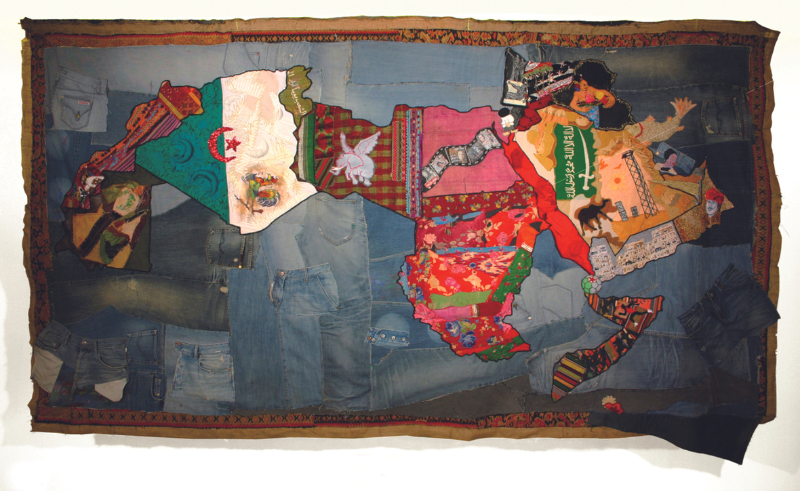 In opposing imagery, the map of the Arab Spring features an antique rug that serves as the base, symbolising the fundamental aspects of Arab culture that any fresh start should be built upon. Mirroring discarded political philosophies, the rug appears worn and in need of restoration.
In opposing imagery, the map of the Arab Spring features an antique rug that serves as the base, symbolising the fundamental aspects of Arab culture that any fresh start should be built upon. Mirroring discarded political philosophies, the rug appears worn and in need of restoration.
True to the founders' vision, Bokja breathes new life into treasured arts by bringing disparate textures, patterns and stories into vibrant alignment through their singular assemblage approach, ensuring that the past lives on, and becomes the future.
- Previous Article Museum of Islamic Art Doha Hosts Exhibition for Safavid Iran’s Fashion
- Next Article Monochrome Monday: The Electric Blue Edition

